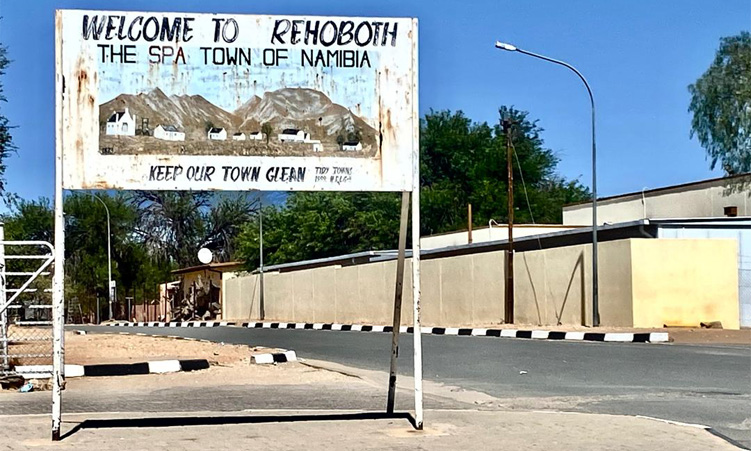HARARE – Zimbabwe’s white commercial farmers have reported an increase in invasions on their farms ahead of a deadline for them to leave land due to be taken by President Robert Mugabe’s government.
Mugabe’s government, which went on a drive to acquire white-held land to resettle landless blacks in 2000, has given hundreds of white farmers until August to vacate the farms. White commercial farmers and blacks illegally occupying some farms were given deadlines between July and August to leave.The Commercial Farmers Union (CFU), which represents the interests of most of Zimbabwe’s remaining white farmers, says its members had reported new invasions ahead of the deadline.”There has been an increase in purported new beneficiaries coming into farms demanding that farmers leave immediately, leaving equipment, which is contrary to ongoing court proceedings and guidelines issued by the ministry,” CFU spokeswoman Emily Crookes said.Crookes said the government’s district land committees were going around farms ‘conducting inventories of crops and equipment’.”We hope this will lead to the issuance of offer letters to farmers who applied for land many, many months ago.”Mugabe’s government has told farmers whose land has been listed to apply for new land, with allocations being done through offer letters issued by the lands ministry.The first wave of farm invasions in 2000 was marked by violence which left several white farmers dead as veterans of Zimbabwe’s liberation war and Zanu PF supporters moved onto farms in chaotic attacks.No violent incidents have been reported in the latest round of invasions.Official figures say between 500 and 600 white farmers remain, down from about 4 500 when the programme began.Crookes said although not all white farmers had been given notice of eviction, disturbances on the farms had hit the sector, with the crucial winter wheat crop being most affected.”The planted commercial wheat crop is under 10 000 hectares this year because of the ongoing disturbances, Zesa power supply problems and less water in the dams due to the poor rains.”Mugabe’s government says Zimbabwe, which has a huge maize deficit after another poor summer season, faces bread shortages as farmers planted only 10 per cent of the country’s wheat requirements in part because the majority of new black farmers lacked farming inputs.Agriculture Permanent Secretary Shadreck Mlambo last week told a parliamentary committee that only about 8 000 hectares of the targeted 76 000 hectares had been put under wheat ahead of the May 31 planting deadline.Mugabe defends his land policy, saying it was necessary to redress colonial imbalances that left 70 per cent of Zimbabwe’s prime land in the hands of a small white minority.Nampa-ReutersWhite commercial farmers and blacks illegally occupying some farms were given deadlines between July and August to leave.The Commercial Farmers Union (CFU), which represents the interests of most of Zimbabwe’s remaining white farmers, says its members had reported new invasions ahead of the deadline.”There has been an increase in purported new beneficiaries coming into farms demanding that farmers leave immediately, leaving equipment, which is contrary to ongoing court proceedings and guidelines issued by the ministry,” CFU spokeswoman Emily Crookes said.Crookes said the government’s district land committees were going around farms ‘conducting inventories of crops and equipment’.”We hope this will lead to the issuance of offer letters to farmers who applied for land many, many months ago.”Mugabe’s government has told farmers whose land has been listed to apply for new land, with allocations being done through offer letters issued by the lands ministry.The first wave of farm invasions in 2000 was marked by violence which left several white farmers dead as veterans of Zimbabwe’s liberation war and Zanu PF supporters moved onto farms in chaotic attacks.No violent incidents have been reported in the latest round of invasions.Official figures say between 500 and 600 white farmers remain, down from about 4 500 when the programme began.Crookes said although not all white farmers had been given notice of eviction, disturbances on the farms had hit the sector, with the crucial winter wheat crop being most affected.”The planted commercial wheat crop is under 10 000 hectares this year because of the ongoing disturbances, Zesa power supply problems and less water in the dams due to the poor rains.”Mugabe’s government says Zimbabwe, which has a huge maize deficit after another poor summer season, faces bread shortages as farmers planted only 10 per cent of the country’s wheat requirements in part because the majority of new black farmers lacked farming inputs.Agriculture Permanent Secretary Shadreck Mlambo last week told a parliamentary committee that only about 8 000 hectares of the targeted 76 000 hectares had been put under wheat ahead of the May 31 planting deadline.Mugabe defends his land policy, saying it was necessary to redress colonial imbalances that left 70 per cent of Zimbabwe’s prime land in the hands of a small white minority.Nampa-Reuters
Stay informed with The Namibian – your source for credible journalism. Get in-depth reporting and opinions for
only N$85 a month. Invest in journalism, invest in democracy –
Subscribe Now!






